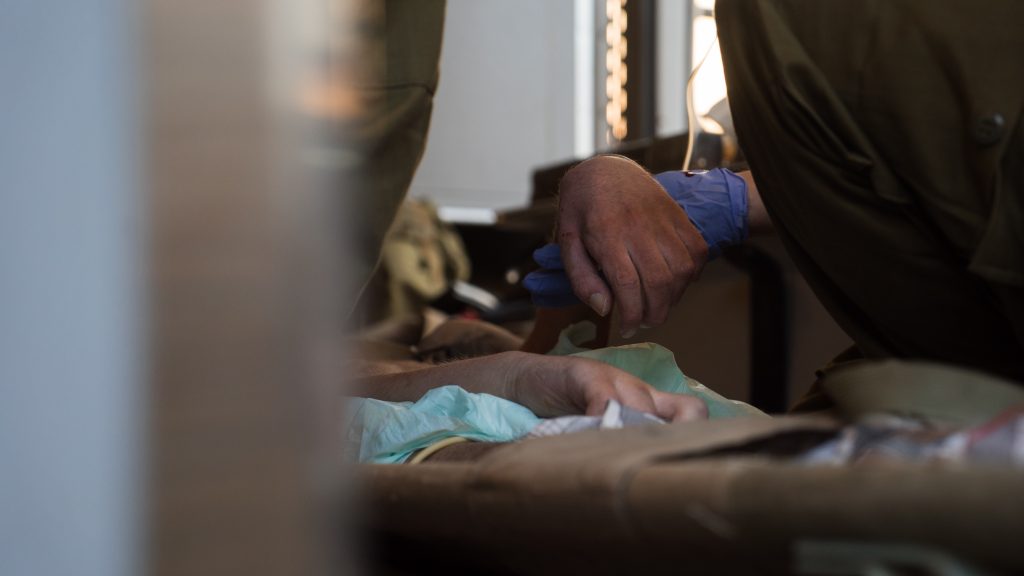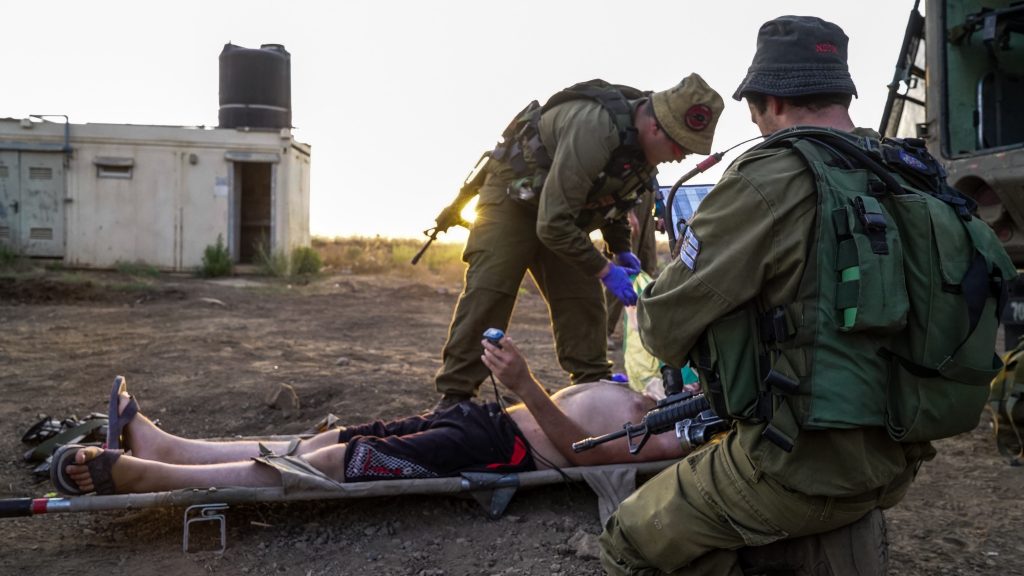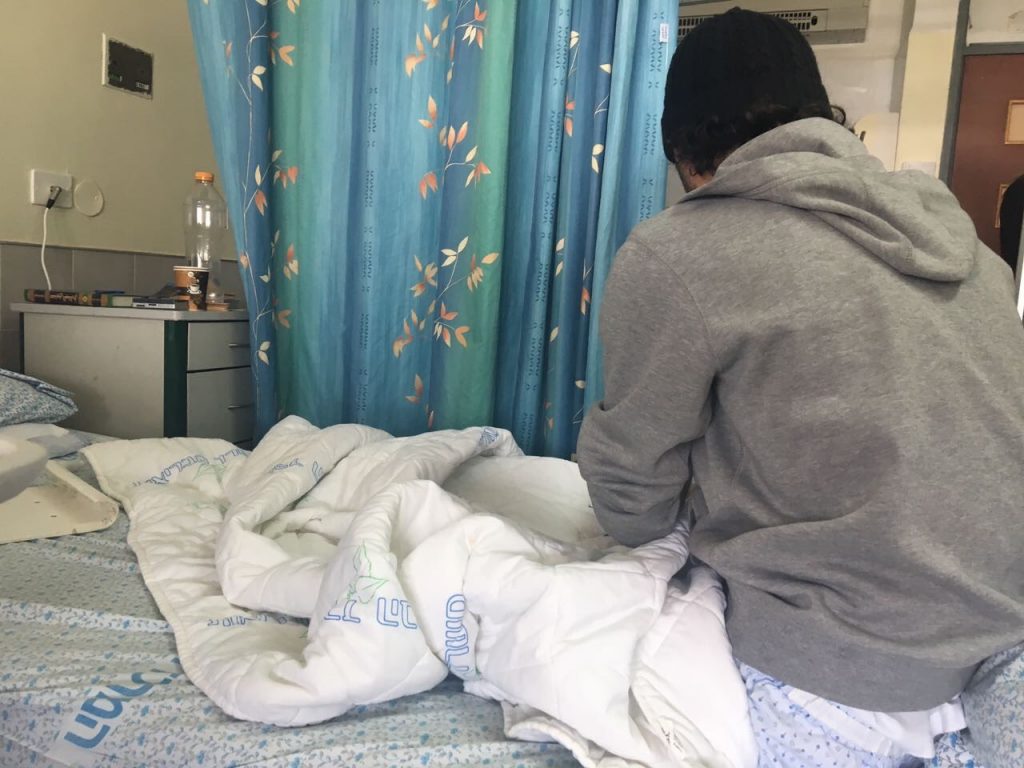
Syrian Victims and the Israeli Soldiers That Help Them
“In light of the atrocities taking place in Syria, and the events of the past few days which rocked the world, IDF soldiers continue to provide medical care to wounded Syrians, as we’ve done for more than four years,” says Lt. Col. Dr. Tomer Koller, the medical officer of the Bashan Division in the Golan Heights. “The treatment of wounded Syrians is continuous, and is carried out on a near-daily basis. It’s our duty as members of the Medical Corps to treat the injured – both the ally and the enemy. To us, they’re injured people who need help.”

“It started with one injured Syrian who came to the border four years ago, asking for medical help. Back then, there was no policy, just a commander’s on-the-spot decision not to oppose providing care to an injured person,” Lt. Col. Dr. Koller says. “From then on, about 2,800 injured Syrians have entered Israel to receive medical care, and the number continues to rise.” In 2016 alone, 600 Syrians were treated in Israeli hospitals. “The numbers tell you how many injured people there were, but at the end of the day, every injured person has their own story.”

Sgt. Aviya, a medic from the Golan Brigade, provides medical care to injured Syrians almost daily. “It starts with receiving a phone call, usually late at night, of wounded people on the way to the fence,” she says. “From there, on the way to a meeting point near the fence, we get ready for treatment and try to understand – or guess – what’s waiting for us and what to prepare for.”

Sgt. Aviya remembers one particular case: “The first time I needed to use my training from medics course, my team and I were called to treat a 10-year-old Syrian boy who was badly injured by an explosion on the other side of the border. When we met him, his eyes were full of tears and he was in shock because of everything that was happening around him – he was wounded and confused. We gave him first aid and prepared him for a quick evacuation to a hospital in Israel.” One particular moment stands out. “When we finished treating him, the kid looked up at us and gave us this little bashful smile. I understood that we may have just saved the life of this child, but no less important, we created this bridge between two worlds. That’s the beauty of being a part of this team.”

Most of the wounded Syrians are evacuated to hospitals in northern Israel. There, dedicated medical professionals treat them until they return to Syria. We met this week with A, a wounded Syrian hospitalized in the orthopedic wing of Ziv Hospital in Safed. A, a young man, says, “I don’t know the situation of my family at home. I left a wife and two-year-old child, my son, back in Syria.” The trauma of war is still etched in his memory. He says that he’s grateful for the treatment he’s receiving in Israel, and that “[he prays] that other countries would do the same.” He calls on them to “wake up and see what’s happening in Syria to the Syrian people.”

“The story of the treatment of all those who need it is a story of compassion and the IDF’s ethical code,” Lt. Col. Dr. Koller says. “Even though we take care not to get involved in the internal fighting in Syria, the treatment of any injured person who needs help – regardless of nationality or which side of the border they come from – stands above all, and this is who we are as a society.”


